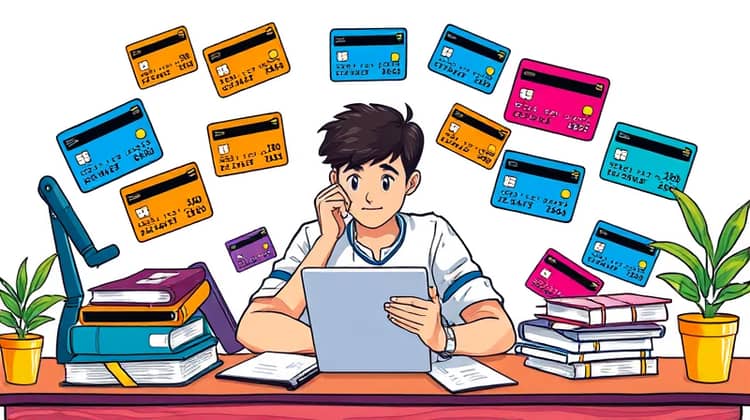Navigating college life involves tackling more than just academic responsibilities; it also requires managing personal finances. For many students, this means finding ways to establish credit while balancing limited budgets and expenses. Enter student credit cards, a financial tool designed specifically for college students. Understanding student credit cards can empower students to make informed decisions about their financial future.
Student credit cards not only provide a means of making purchases but also offer an opportunity to build a credit score—a crucial component for future financial endeavors such as renting an apartment, applying for loans, or even landing a job. However, it's vital to approach credit responsibly to avoid falling into debt traps during one's formative financial years.
This article will delve into what student credit cards are, why they are necessary, their unique features, how to choose the right one, and tips for responsible use. With the right information, students can leverage these financial tools to enhance their economic independence.
What is a Student Credit Card?

A student credit card is a specific type of credit card that is designed for individuals enrolled in college or university. These cards typically come with lower credit limits and are tailored to help students manage their finances while also beginning to build their credit history.
These cards often have more lenient approval criteria, recognizing that many students may have little or no credit history. This makes them an accessible option for students who are stepping into the world of personal finance for the first time.
Apart from access to credit, student credit cards often come with educational resources and tools to help young borrowers learn about responsible credit management, empowering them to make informed financial decisions.
Why Do Students Need Credit Cards?

There are several reasons why students might consider applying for a credit card during their college years. Firstly, credit cards provide a convenient way to manage expenses, especially for students who may not have a consistent source of income.
In addition to convenience, establishing a credit history early can greatly benefit students in the long run. Having a good credit score can assist in securing favorable interest rates on loans, renting apartments, and even impacting job opportunities, as many employers cater to a candidate's financial responsibility.
- Convenience for managing everyday expenses
- Building a credit score early for future financing needs
- Emergency funding for unexpected expenses
- Potential rewards or cash back programs tailored for students
By utilizing a student credit card wisely, students can set a strong foundation for their financial future while enjoying the perks that come with responsible spending.
Features of Student Credit Cards

Student credit cards often come with features designed to encourage responsible use and provide support for young users. Many offer tools to track spending and understand budgeting, which can be invaluable for those who are new to managing finances.
- Lower credit limits to prevent overspending
- Rewards programs for students (like cash back on purchases)
- No annual fees or lower fees compared to traditional cards
- Educational resources and spending alerts for better financial management
These features not only help students manage their credit but also promote healthy financial habits as they navigate the complexities of adulthood.
How to Choose the Right Student Credit Card

Choosing the right student credit card can have a significant impact on a student's personal finance journey. It's important to assess options that align with one's financial habits and abilities.
- Consider the interest rates (APR) and fees
- Check for any rewards or cash back benefits
- Look for additional features, such as spending limits and alerts
Tips for Using Student Credit Cards Responsibly

Using a student credit card comes with great responsibility. To maintain a healthy credit card practice, students should follow these tips.
- Always pay on time to avoid late fees and interest
- Spend within your means to prevent debt accumulation
- Regularly review statements to track spending habits and ensure there are no unauthorized transactions
By adopting these practices, students can reap the benefits of credit cards without falling into the traps of debt and poor financial health.
Conclusion

In summary, student credit cards serve as a valuable tool for building financial independence and establishing credit history. They offer flexibility and rewards, designed specifically with students in mind. However, it is essential to understand them fully and use them responsibly to avoid pitfalls associated with debt accumulation.
As students embark on their journey into adulthood, they should embrace the opportunities that come with having a credit card, but remember that responsible usage is key. Taking control of one's financial future starts with staying informed and making educated choices regarding credit.














